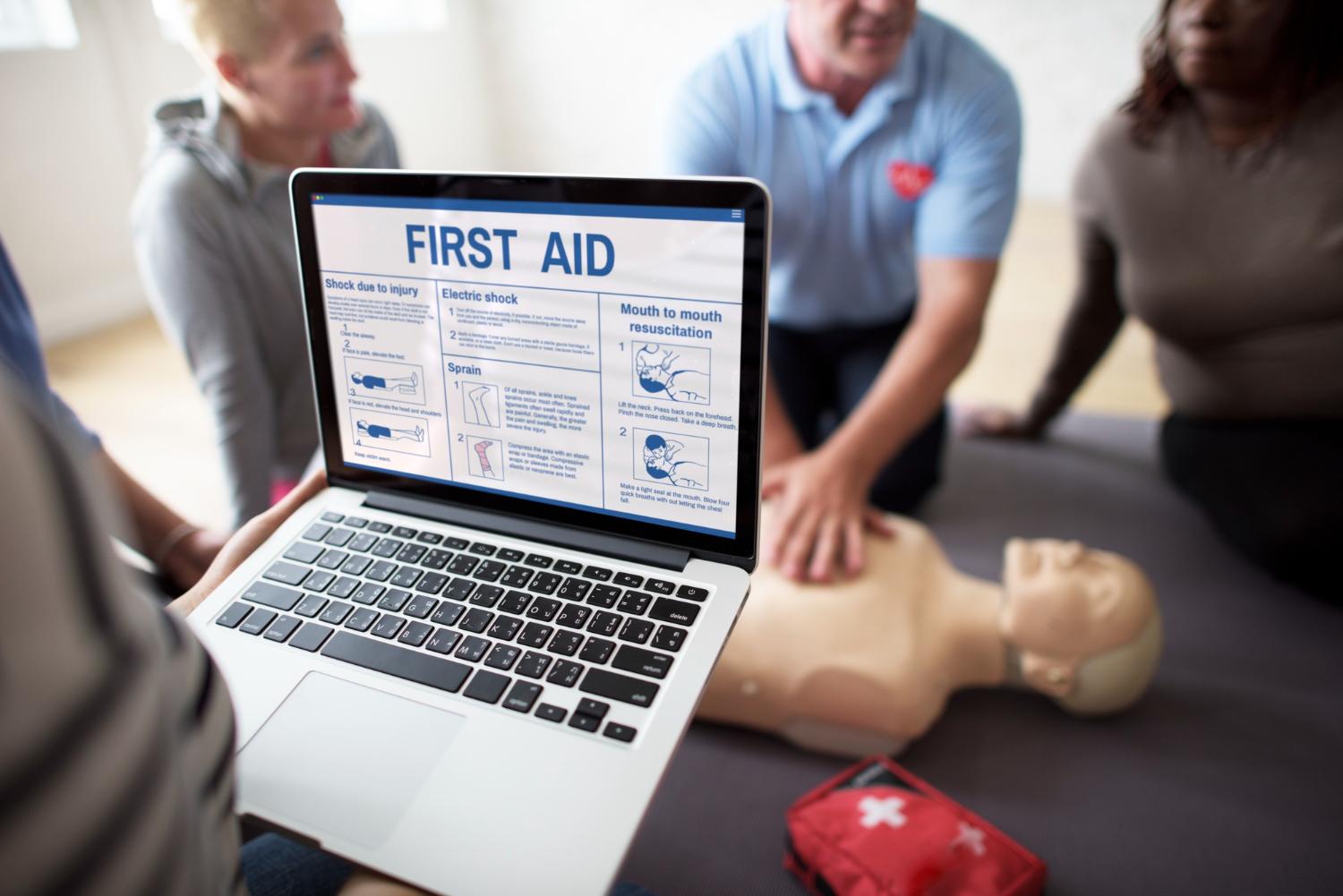Taking a first aid course can be a life-changing decision. Whether for work, home, or volunteering, knowing how to respond to an emergency could save lives. Many people wonder if it’s worth the time and effort, but the benefits of first aid training are numerous and significant.
First aid courses teach essential skills that can help you handle various emergencies calmly and effectively. From treating cuts and burns to performing CPR, these skills can make a substantial difference. These courses are designed to be accessible to everyone, regardless of prior medical knowledge, making them a practical choice for many.
Beyond the immediate benefits of knowing how to respond in an emergency, first aid courses can boost your confidence. You will feel better equipped to handle unexpected situations, which can be reassuring in everyday life. The knowledge gained from these courses is not only useful in emergencies; it also promotes overall safety and preparedness, contributing to a more secure environment.
Benefits of Taking a First Aid Course
Taking a first aid course has many advantages. These benefits can help you in various areas of your life, from personal safety to community involvement.
1. Preparedness:
– First aid training prepares you to handle emergencies. Knowing what to do in a crisis can make a significant difference in the outcome. You can provide immediate help while waiting for professional medical assistance, potentially saving lives.
2. Confidence:
– Learning first aid boosts your confidence. You will feel more secure knowing you have the skills to deal with injuries and emergencies. This confidence can extend to other areas of your life, making you more resilient and calm under pressure.
3. Workplace Safety:
– Many workplaces require employees to have first aid training. Being trained increases your employability and helps create a safer working environment. You will be able to assist in case of workplace accidents, which can help reduce the severity of injuries.
4. Community Contribution:
– First aid knowledge allows you to contribute to your community. You become a valuable resource, capable of offering help at community events or in everyday situations. This sense of contribution enhances community well-being.
5. Health Awareness:
– First aid courses increase your awareness of health and safety issues. You will learn about common health risks and how to prevent them, promoting a healthier lifestyle for yourself and those around you.
Key Skills You Will Learn
First aid training covers a wide range of skills. These skills are essential for dealing with various emergencies and can be life-saving.
1. Cardiopulmonary Resuscitation (CPR):
– One of the most critical skills you will learn is CPR. This technique is used to maintain circulation and breathing in a person who has gone into cardiac arrest. It’s essential for keeping oxygen flowing to the brain and other vital organs.
2. Wound Care:
– You will learn how to treat different types of wounds. This includes cleaning cuts and scrapes, applying bandages, and managing more severe injuries like burns and fractures.
3. Burn Treatment:
– Treating burns promptly can prevent complications. In a first aid course, you will understand how to assess burn severity and provide immediate care to reduce pain and infection.
4. Choking Relief:
– Techniques for relieving choking are another vital skill. You will practice methods such as the Heimlich manoeuvre and learn how to assist babies, children, and adults who are choking.
5. Managing Shock:
– Shock is a life-threatening condition that can follow severe injuries or medical emergencies. The course will teach you how to recognise signs of shock and provide necessary care to stabilise the person until professional help arrives.
6. Use of an AED:
– Automated External Defibrillators (AEDs) are crucial tools in cardiac emergencies. You will learn how to operate an AED, which can be pivotal in resuscitating someone with sudden cardiac arrest.
By acquiring these skills, you can act confidently and efficiently in emergencies, providing critical care that could save lives and reduce the severity of injuries.
Common Myths About First Aid Training
There are several misconceptions about first aid training that can deter people from taking these valuable courses. Let’s bust some of these common myths.
1. “First Aid Training Is Too Difficult”:
– Many believe first aid courses are complicated, but that’s not true. These courses are designed for all skill levels, and instructors break down each topic into simple, manageable steps.
2. “It’s Only for Medical Professionals”:
– First aid training is beneficial for everyone, not just medical professionals. These courses are tailored for the general public and do not require any prior medical knowledge.
3. “Emergencies Never Happen”:
– Some think emergencies are rare, but they can happen at any time. Being prepared with first aid knowledge helps you respond effectively to common emergencies in everyday life.
4. “You Can’t Make a Difference”:
– A common myth is that only doctors and paramedics can make a significant impact. In reality, immediate first aid can be crucial in stabilising a victim until professional help arrives.
5. “All First Aid Courses Are the Same”:
– Many assume all first aid courses are identical, but they vary in content and depth. Some focus on specific areas like paediatric first aid, workplace safety, or sports injuries, providing targeted knowledge for different needs.
Understanding the truth behind these myths can encourage more people to take first aid courses, enhancing safety in our communities.
FAQs About First Aid Courses
1. How long does a first aid course take?
Most basic first aid courses take one day to complete, usually around 6 to 8 hours. Advanced courses may take multiple days.
2. Is certification required after completing a course?
Yes, most first aid courses provide certification upon completion. This certification is often valid for three years, after which a refresher course may be required.
3. Can children take first aid courses?
Yes, there are courses designed for children, usually starting from age 10. These courses teach age-appropriate skills and safety awareness.
4. How much do first aid courses cost?
The price varies based on the course type and provider, ranging from £50 to £300. Check with your selected training centre for specific pricing.
5. Do I need to renew my first aid certification?
Yes, certifications typically need renewal every three years. Refresher courses are shorter and update you on the latest techniques and guidelines.=
6. Can I take a first aid course online?
Some aspects of first aid training can be done online, but practical skills usually require in-person sessions. Blended courses combine online and face-to-face training.
Conclusion
Deciding to take a first aid course is a wise investment for anyone. The skills you acquire can prepare you to handle emergencies efficiently and confidently. From life-saving techniques like CPR to everyday skills like wound care, the knowledge you gain is invaluable. Understanding the myths and truths about first aid training can clear up any misconceptions and motivate more people to get trained.
In addition to personal and workplace safety, first aid skills play a vital role in community well-being. You become a reliable resource in times of crisis, whether at home, work, or public places. The preparedness and confidence boost from these courses translate into a sense of security and readiness for unforeseen events.
Are you ready to enhance your skills and make a difference? Visit CR Training to find the perfect first aid training in Edinburgh for you. Equip yourself with the knowledge and confidence to act in emergencies. Sign up today and take the first step toward becoming a first aid hero.




